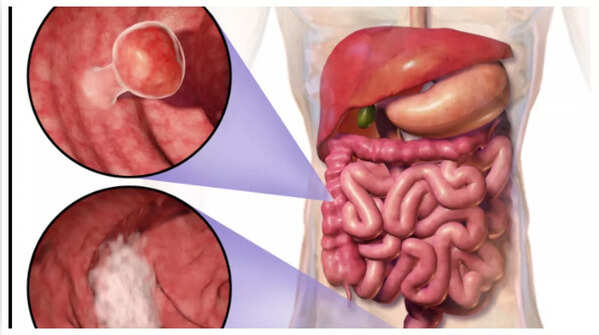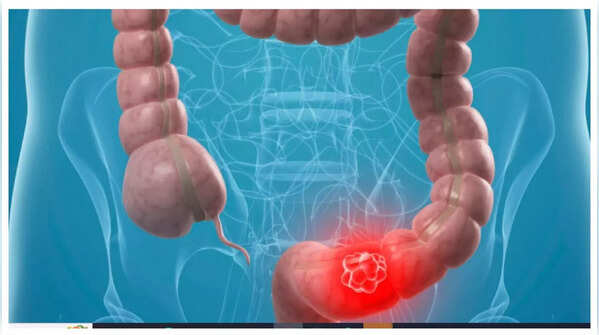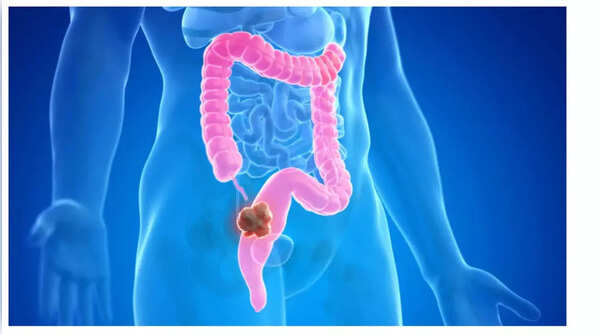Colon cancer, also known as colorectal cancer, originates in the colon or rectum. It frequently begins as noncancerous polyps that can become cancerous over time. While most cases occur randomly, factors like family history, obesity, and lifestyle can elevate the risk, especially after age 50. Early symptoms are often subtle and mistaken for common digestive issues. However, recognizing these early warning signs is crucial for timely intervention.

A primary indicator of colon cancer is a change in bowel habits, including:
These changes may seem insignificant and be attributed to diet or stress. However, persistent bowel changes lasting more than a few days could signal a growing tumor disrupting normal bowel movements.

The presence of blood in stool is a symptom that should never be ignored. It may manifest as:
Sometimes, bleeding is minimal and only detectable through anemia. While various conditions, such as hemorrhoids, can cause blood in the stool, it's essential to rule out colon cancer, especially with recurring occurrences or accompanying symptoms.

Persistent abdominal discomfort can be another early warning sign. This may include:
Such discomfort is easily mistaken for indigestion or minor digestive issues. However, if the pain is continuous and unrelated to dietary or lifestyle adjustments, it may indicate a tumor causing irritation or blockage in the colon.

Unexplained and persistent fatigue and weakness can be a subtle sign of colon cancer, particularly when accompanied by other symptoms. This often results from slow, undetected bleeding in the colon, leading to iron deficiency anemia. Reduced red blood cells hinder oxygen transport, causing fatigue, shortness of breath, and weakness. While these symptoms can be attributed to stress or lack of sleep, it's important to investigate them further.

Unexplained weight loss is a common symptom across many cancers, including colon cancer. When the body combats cancer, the immune system works overtime, and tumors can disrupt digestion and appetite. Significant weight loss without changes in diet or exercise warrants medical consultation, even though this symptom typically arises later, it can sometimes present as an early indicator.

Disclaimer: This article is for informational purposes only and does not substitute professional medical advice. Always consult with a qualified healthcare provider for any health concerns.
Sources:









Newer articles
Older articles
 Greg Chappell: Rishabh Pant is Revolutionizing Cricket with Unorthodox Style
Greg Chappell: Rishabh Pant is Revolutionizing Cricket with Unorthodox Style
 Asia Cup 2025: ACC Reportedly Targets September Start Amid Rising Hopes, Aims for Schedule Release Next Month
Asia Cup 2025: ACC Reportedly Targets September Start Amid Rising Hopes, Aims for Schedule Release Next Month
 Najmul Hossain Resigns as Bangladesh Test Captain After Sri Lanka Defeat
Najmul Hossain Resigns as Bangladesh Test Captain After Sri Lanka Defeat
 Former India Selector Blasts Fielding Lapses After Test Defeat; Urges Patience With Team
Former India Selector Blasts Fielding Lapses After Test Defeat; Urges Patience With Team
 Optical Illusion Puzzle: Only 1% Can Find All Hidden Animals – Can You?
Optical Illusion Puzzle: Only 1% Can Find All Hidden Animals – Can You?
 Indian Pacer Harshit Rana Released from Squad Ahead of Second England Test Amidst Series Pressure
Indian Pacer Harshit Rana Released from Squad Ahead of Second England Test Amidst Series Pressure
 Rishabh Pant's Somersault Celebration Draws "Unnecessary" Remark From Doctor Who Aided Recovery
Rishabh Pant's Somersault Celebration Draws "Unnecessary" Remark From Doctor Who Aided Recovery
 Earth's Mantle Unleashes Volcanic Fury, Carving New Ocean in Africa
Earth's Mantle Unleashes Volcanic Fury, Carving New Ocean in Africa
 Smith Targets Test Return After Baseball Cage Rehab in New York
Smith Targets Test Return After Baseball Cage Rehab in New York
 Oral Cancer: Spotting the Signs, Understanding the Risks, and Why Early Detection is Key
Oral Cancer: Spotting the Signs, Understanding the Risks, and Why Early Detection is Key